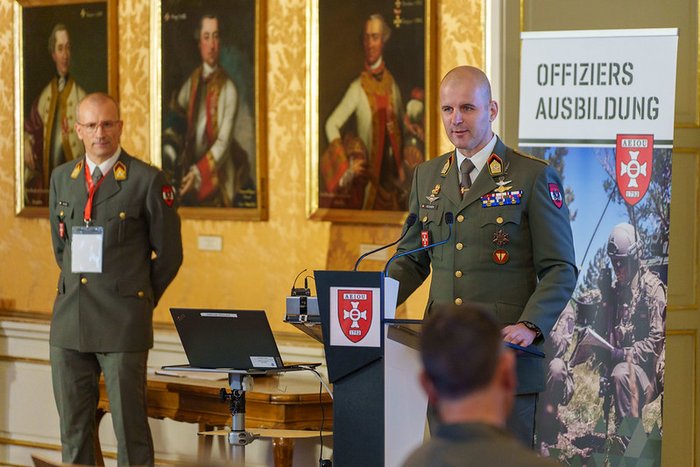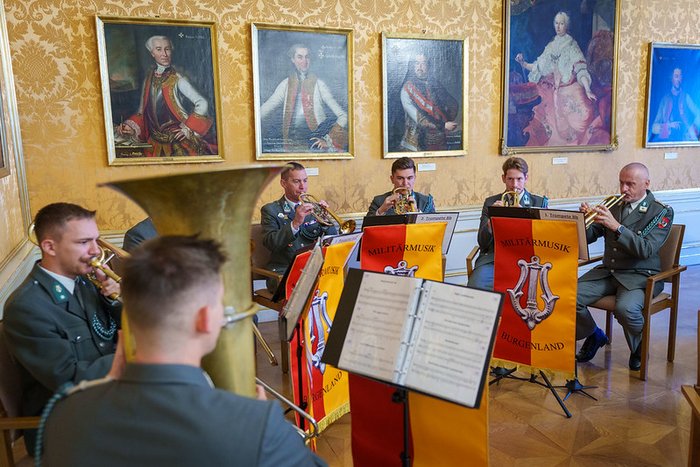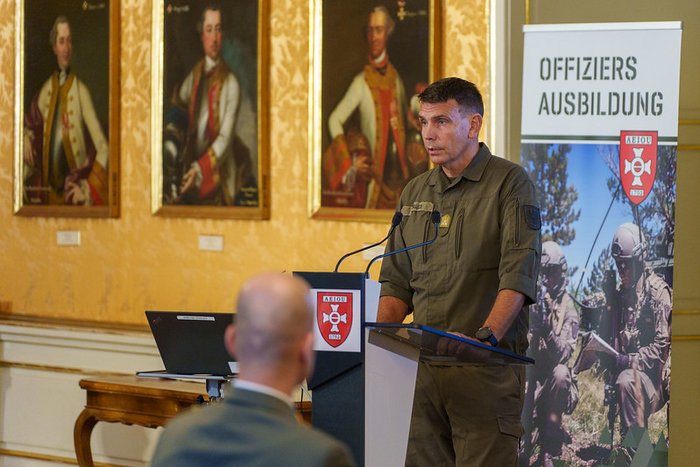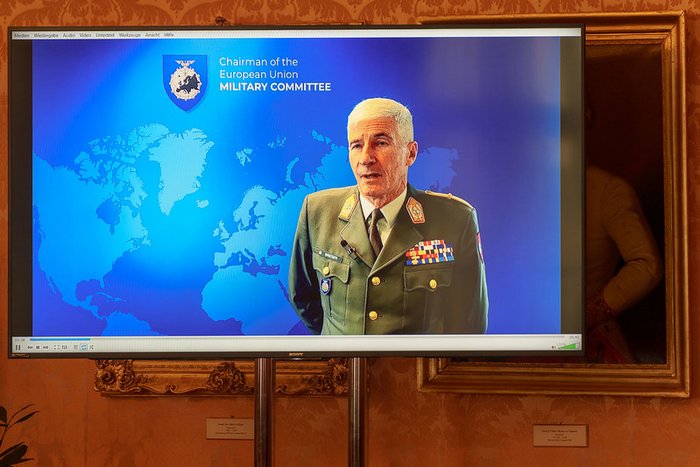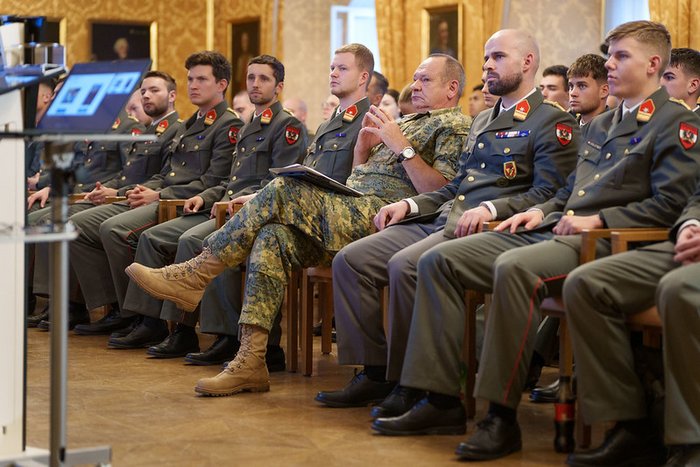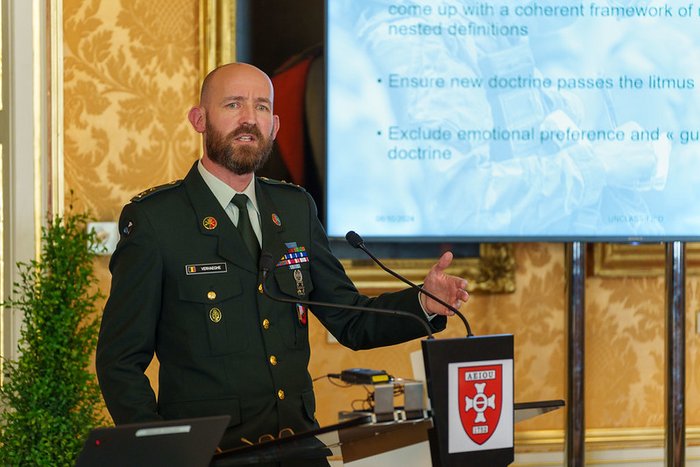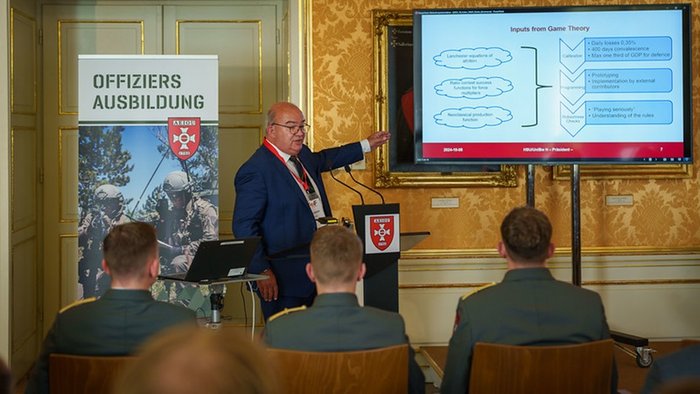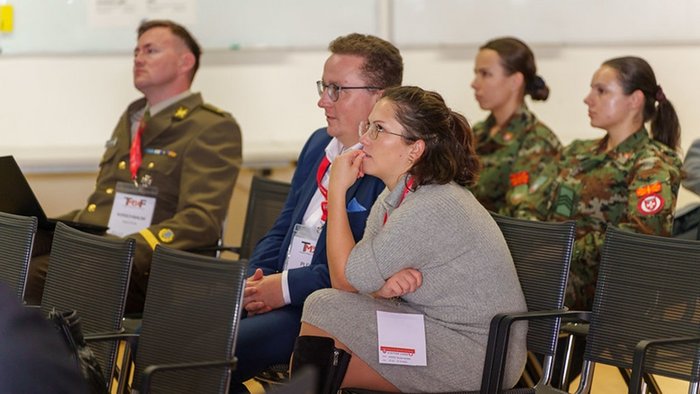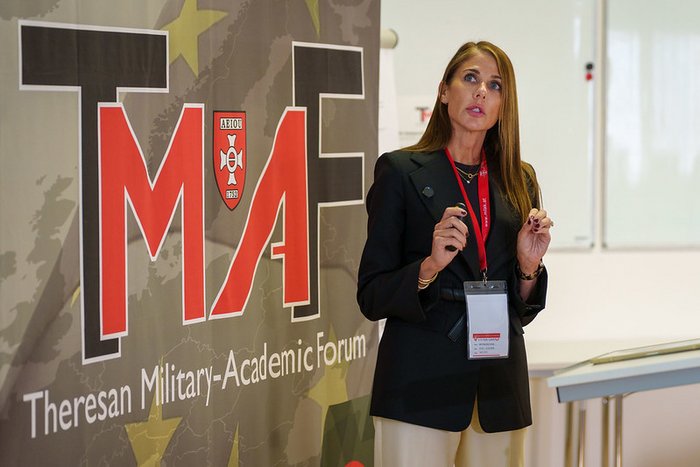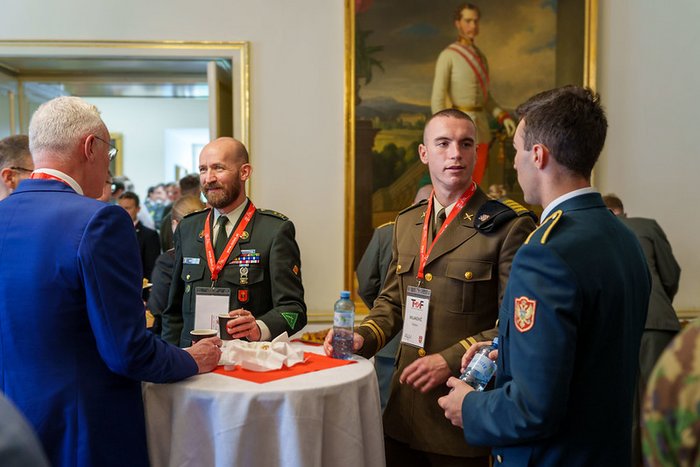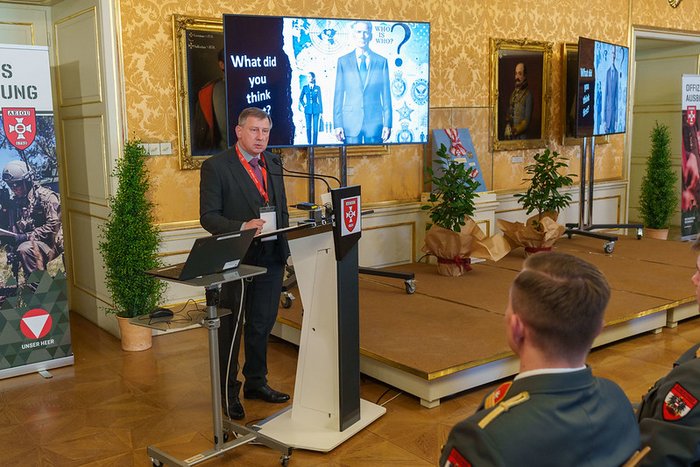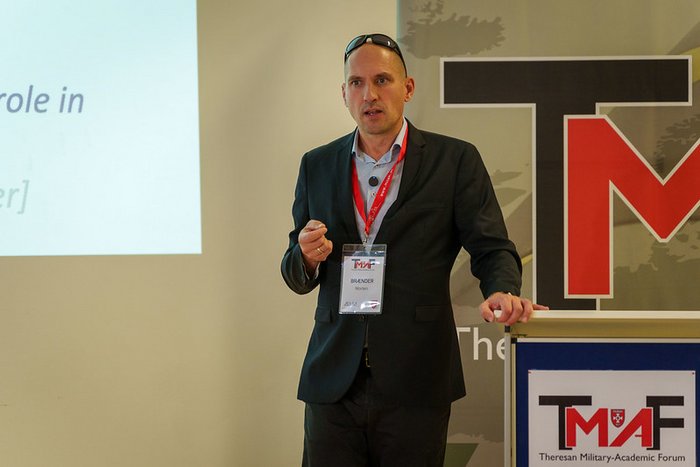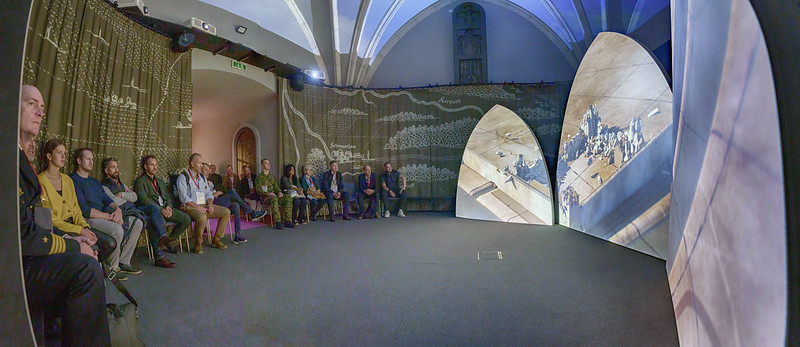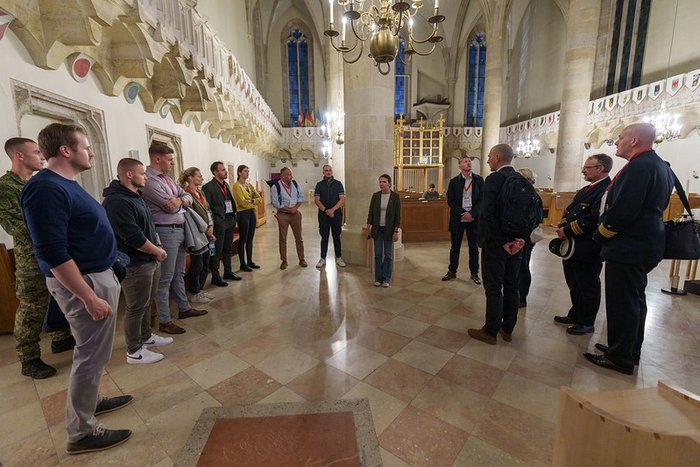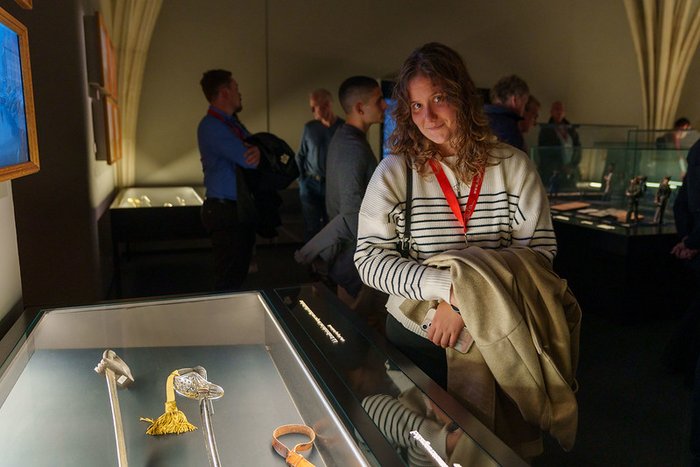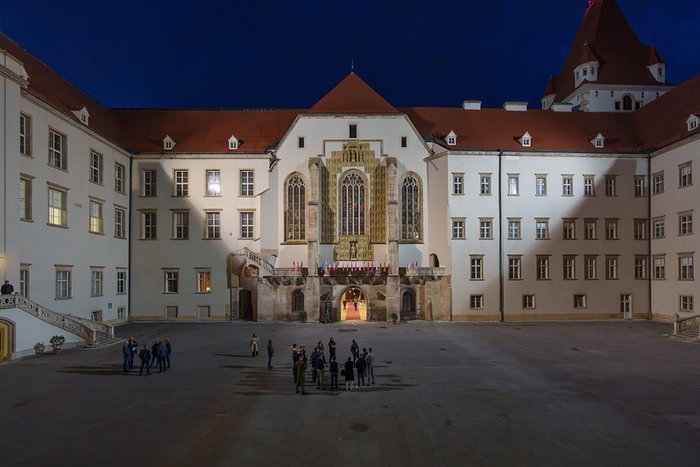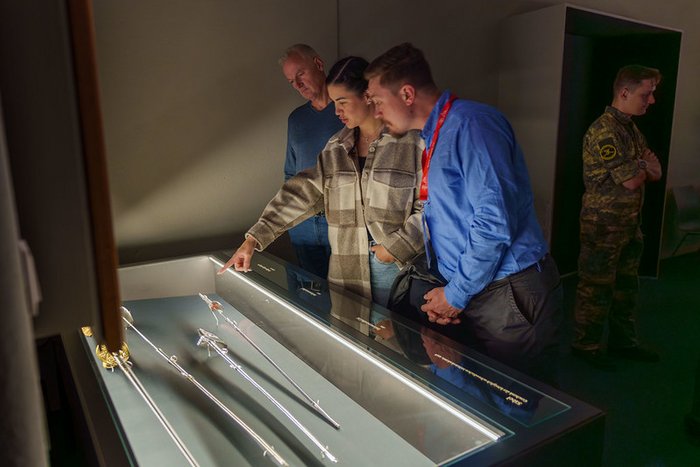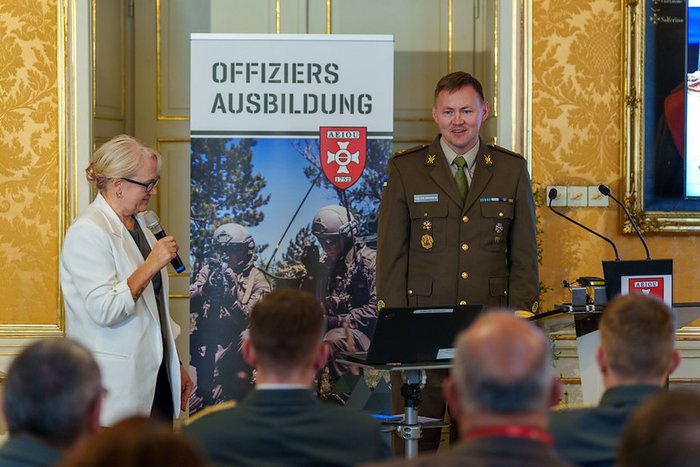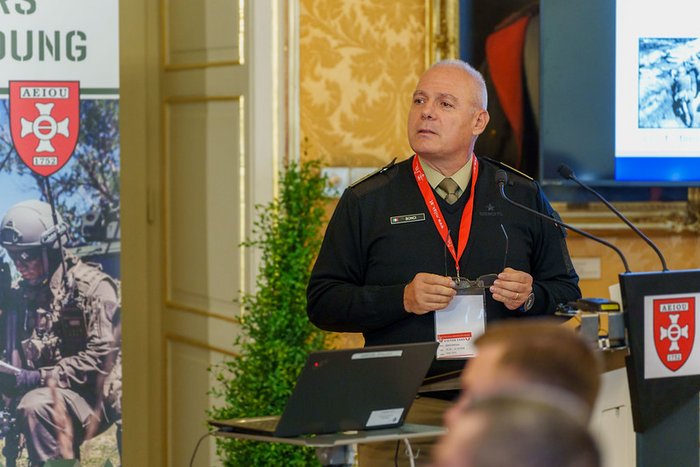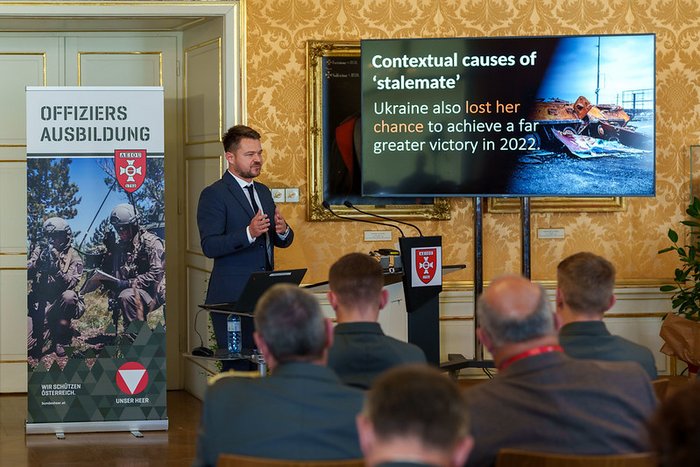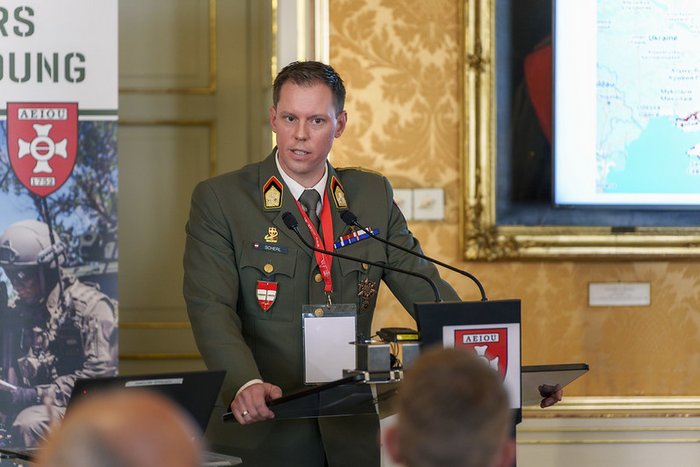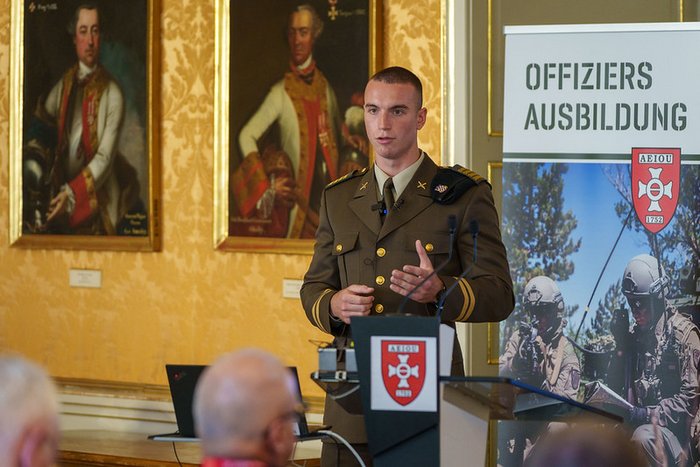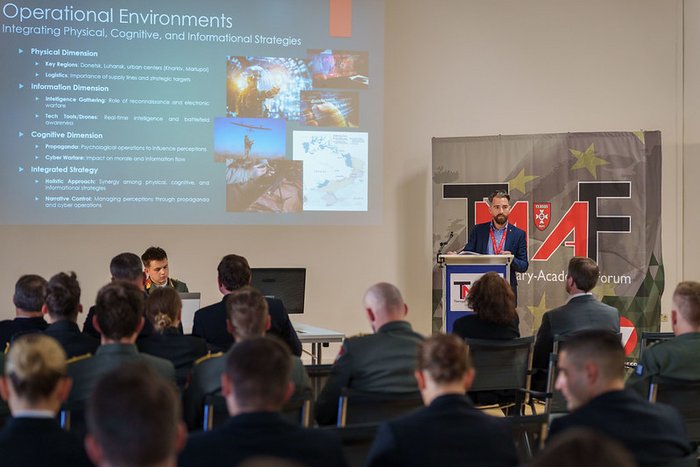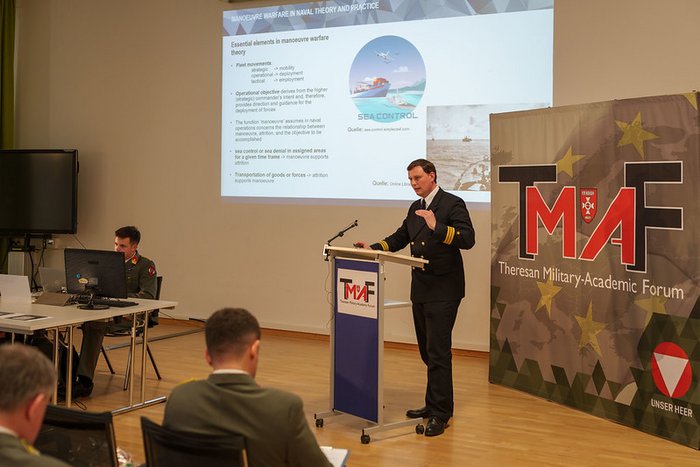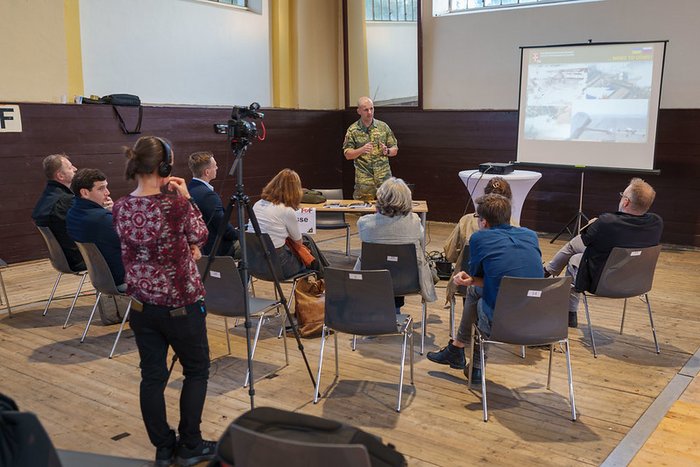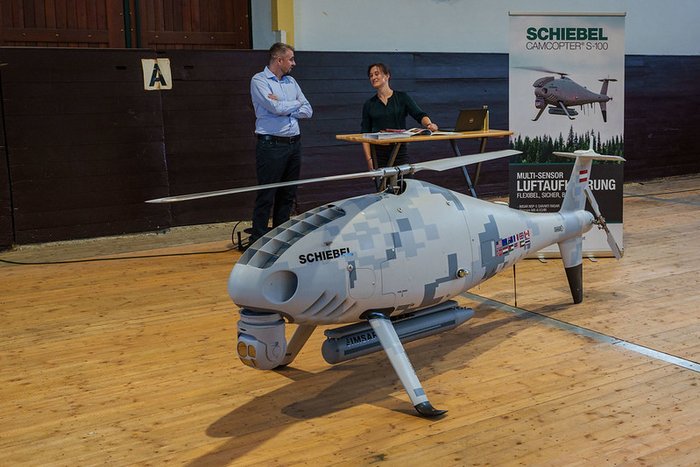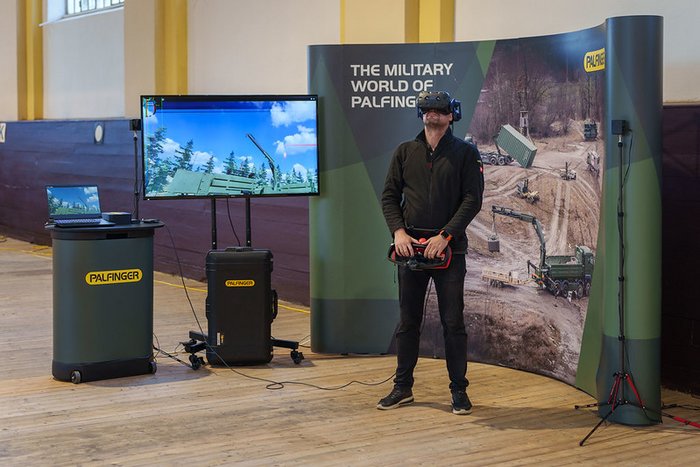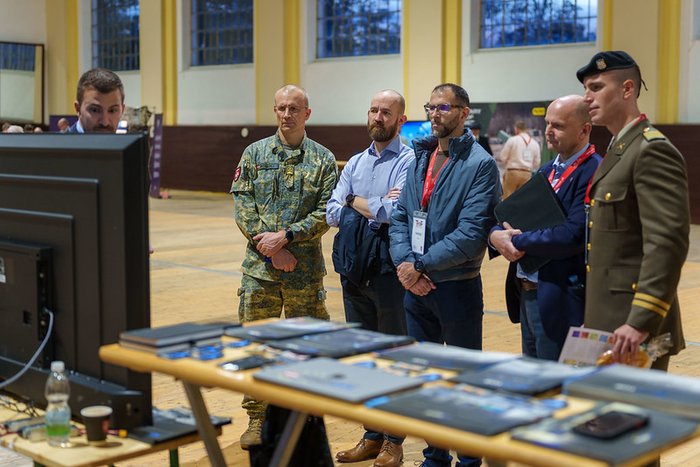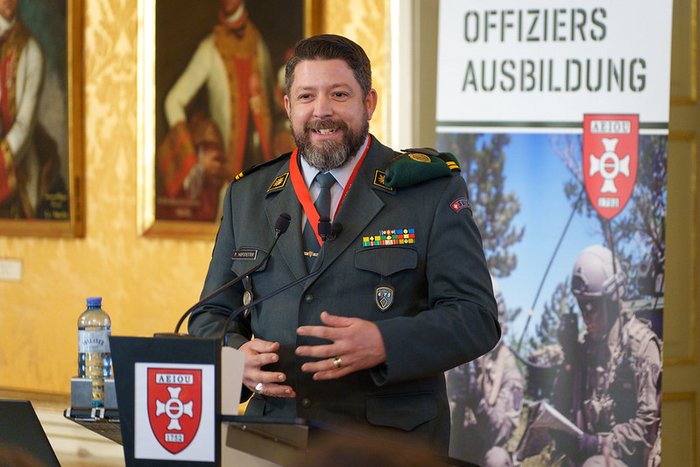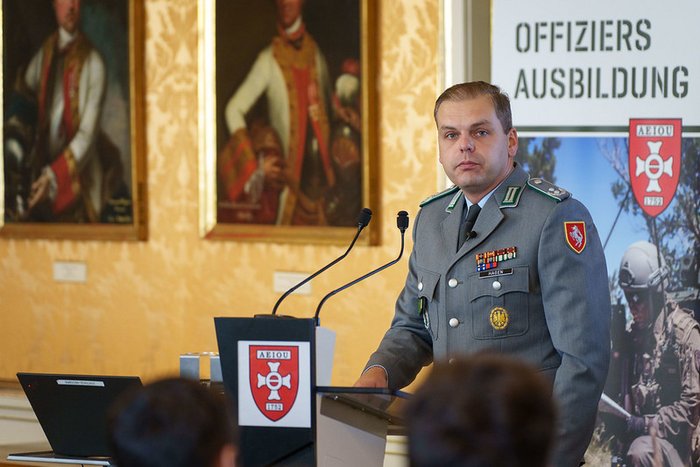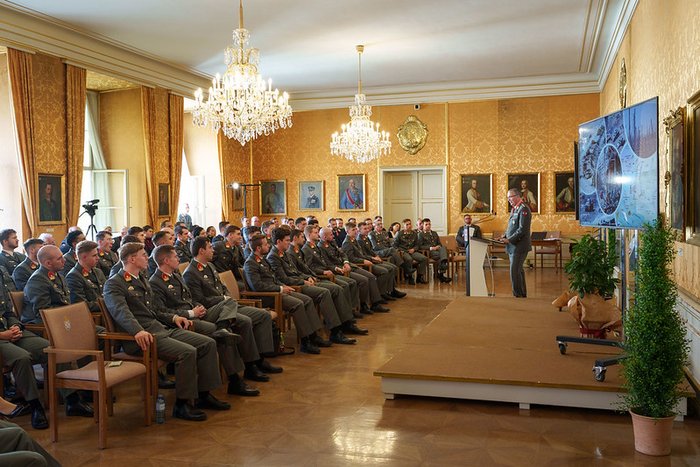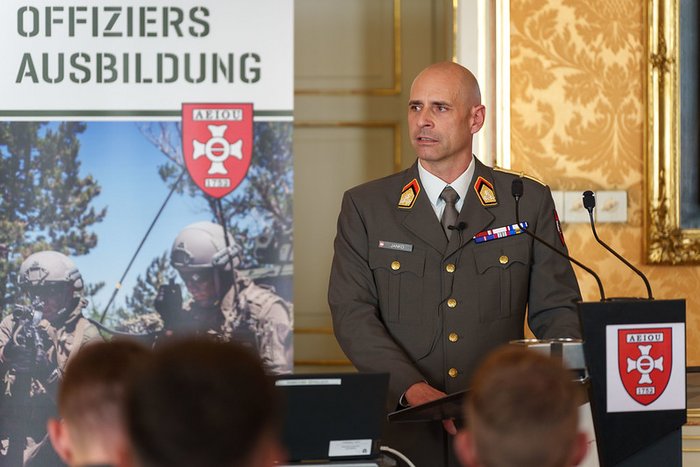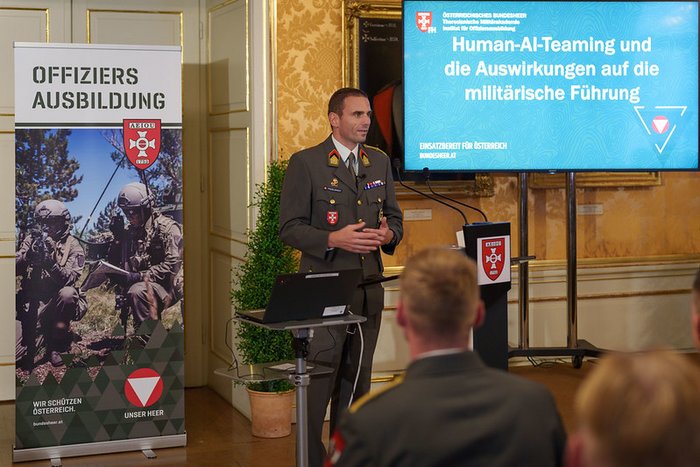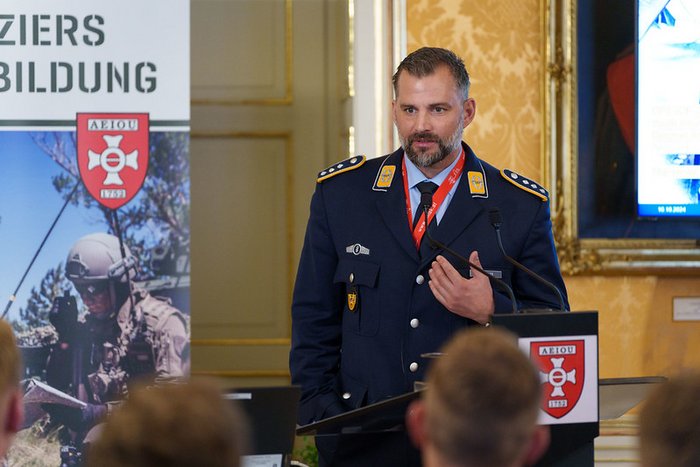‘Manoeuvre Warfare and Manoeuvrist Approach’
This year's TMAF had the topic ‘Manoeuvre Warfare and Manoeuvrist Approach’ and took place from 8th to 10th October 2024 at the Theresan Military Academy (TMA). For Western strategists, the ‘Manoeuvrist Approach’ is the fundamental theory. NATO Allied Joint Doctrine for Land Operations explains that the ‘manoeuvrist approach’ is an ‘indirect and more sophisticated approach’ that focuses on using ‘strength against possible vulnerabilities’ and ‘recognises the importance of cohesion and will’. The ‘Manoeuvrist Approach’ is considered to represent a more intellectual approach compared to other concepts such as attrition or attrition. However, the current war in Ukraine has shown both the reality and the necessity of attrition concepts and therefore raises the question: Is Manoeuvre dead?
Call for Papers
Experts and scientists were invited to participate in the symposium at the beginning of the year via the call for papers. Applications were made by submitting a predefined abstract on the topic in German or English. This year, an unexpectedly high number of applications from speakers on this topic were submitted. The scientific committee evaluated the 53 submitted abstracts and created a programme with speakers from 14 nations. Due to the high number of high-quality submissions, up to three parallel sessions with thematic focuses were formed for the first time. As in the previous year, the TMAF was held in English on the first two days. On the third day of the event, the content was then explored in German. The symposium programme followed the usual sequence of three thematically related lectures, followed by a discussion between the audience and the speakers.
Opening
On Tuesday, 8 October 2024, the head of the Institute for Officer Training, Colonel of the General Staff (GS) Dr Markus Reisner PhD, opened the forum and welcomed the international participants. This was followed by a video message from the Chairman of the Military Committee of the European Union (EUMC), General Robert Brieger, who addressed the participants. The keynote address by the Deputy Chief of the General Staff, Lieutenant General Bruno Hofbauer, set the thematic tone for the event. This was followed by a presentation by Dr. Simone Weninger, a historian, who gave an analysis of the development of land manoeuvres from antiquity to the 20th century. The opening was accompanied by a music ensemble of the Military Music Burgenland.
Concepts for Maneuver Warfare
Lieutenant Colonel Dr Tom Simoens from the Royal Military Academy in Belgium introduced the first block of topics. He believes that the failed Russian invasion in February 2022 and the unsuccessful Ukrainian counter-offensive in June 2023 seriously challenge the basic principles of the Western military doctrine, which is based on the ‘Manoeuvrist Approach’. It is therefore imperative to return to the war of position, for which the First World War serves as a valuable historical case study.
Colonel (retired) Friedrich K. Jeschonnek from Germany, of the European Military Press Association (EMPA), presented the conclusions and lessons learned from the analysis of NATO's defence concept during the Cold War. In his view, these include, above all, clear and consistent terminology and the application of mission-type tactics at all levels of command.
Lieutenant-Colonel Jeroen Verhaeghe from the Belgian Defence College spoke about the contradiction between the NATO concepts for Maneuver Warfare currently being taught and the formative operational experiences from stabilisation and anti-terrorism operations over the last 30 years. After the thought-provoking presentations, the speakers answered questions from the audience before lunch.
Attrition warfare versus manoeuvre warfare
Prof. Dr. Klaus Beckmann, President of the Bundeswehr University Hamburg, opened the afternoon session with his remarks on the inadequate use of wargames as a pure training tool and as a tool for concept development. He believes that military science should make greater use of wargaming for laboratory experiments to test hypotheses. This can provide the case numbers that cannot be generated in real conflict.
Andre Berntsen, MA, from the Military Academy at ETH Zurich, concluded from the current conflict in Ukraine the fact that it is using the information space to secure resources from the West. This is intended to overcome static war of attrition and return to manoeuvre warfare. Furthermore, he believes that attrition is not an independent concept, but rather a part of manoeuvring warfare and must therefore always be taken into account.
Risk analyst Jozef Hrabina, PhD, from Slovakia, misses long-term thinking in the conflict in Ukraine, after which the post-war order was debated before the conflict could really be ended. In addition, the EU forces neglected to regain their readiness after Russia's occupation of Crimea. By contrast, Russian forces are continuously gaining combat experience against an opponent equipped with NATO equipment and fighting NATO procedures. Hrabina sees this as a latent danger for alliance members in the future. This section was also concluded with a discussion with the audience.
Re-learning conventional warfare
Janos Kemeny, PhD, from Ludovika University in Budapest stated that the Western powers see the interstate war between Ukraine and Russia as a major threat on the one hand; on the other hand, there were political, economic and social processes that led to a decreasing willingness to fight in these states. This requires a reorientation in conventional warfare at the strategic and societal level. The whole of society should be prepared for conventional warfare, including industrial mobilisation and the recruitment of soldiers.
Dr Wolfgang Müller from the German Institute for Defense and Strategic Studies (GIDS) discussed the measures required when authoritarian powers use the economy as a weapon alongside unrestricted hybrid warfare. Therefore, the instruments of economic coercion used by an authoritarian power against liberal democracies must be assessed and conclusions need to be drawn on how to counter the threat through deterrence and defence.
The final speaker in this panel was Anghel Liviu-Florin, a student at the Davila University of Medicine and Pharmacy in Bucharest. The use of newly developed and unconventional weapons in today's theatres of war requires an adaptation of protocols and military medical personnel to the unprecedented challenges at the places of deployment. The military actors of each state should strive to work together within military alliances to communicate the new challenges at the places of deployment and to develop advanced protocols for military medical concepts.
Defence policy
Amber Brittain-Hale, PhD, is a political scientist specializing in global leadership and international relations. Her research examines the psychobiographical and behavioral traits distinguishing women from men in diplomacy and defense, addressing gaps in understanding leadership and strategy within war studies. Her concepts, La Manoeuvre and Ungentlemanly Warfare, highlight how these differences influence power structures, alliance-building, and conflict resolution in modern diplomacy.
Navy Captain Peter Papler from the Ministry of Defence in Slovenia reported on the gap between strategy and strategic culture when comparing defence doctrine and defence policy. This strategic inability is a lack of military and/or intellectual capabilities. Accordingly, the state should create the conditions for improving strategic culture because, unfortunately, a poorly implemented strategy, no matter how clever it is, is worthless.
Associate Professor Dr Morten Braender from Aarhus University in Denmark presented the results of his research into how future military leaders should be motivated and what values they should have. This is intended to expand the recruitment pool, in competition with public and private employers, and to attract and retain people with the right motivation in the armed forces. After this input, the speakers again took questions from the participants, and then it was time for a well-deserved break.
The last contribution of this substantial day was the presentation of the former police officer Vanessa Maria Landmann and Colonel Bernhard Schulyok, MA. This team of lecturers presented possible methods for achieving cognitive resilience in order to reduce false assessments to a minimum and to maximise the speed and effectiveness of decisions made by military leaders. This section was also concluded with a discussion with the audience. The evening programme was a group tour of the exhibition ‘From Imperial Residence to Officers’ Training School’ by members of the TherMilAk.
Consequences for land warfare operations
The second day of the event was opened by Dr. Martin C. Wolff, head of the International Clausewitz Centre at the German Armed Forces Command and Staff College, with his lecture. Wolff is of the opinion that the principle of the superiority of the West and NATO is being challenged in many ways, especially in Ukraine. The use of mass forces in combination with sensors, the ability to wage long and costly wars, and the challenge of wanting to be effective in several global locations at the same time, call this principle into question. He therefore believes that democracies must develop the ability to wage long, multi-local and costly wars that require a dedicated war economy. Furthermore, concepts must also be developed that influence a war phase after a manoeuvre phase back to the original society and economy. This is how the ability to survive sustainable, long-term conflicts and wars should be developed.
Following this, Ülle Säälik, PhD, and Major Karl-Erik Kirschbaum, MA, presented the results of their comprehensive study on manifestations of the Manoeuvrist Approach in the curricula at the Military Academy in Estonia. The principles of the Manoeuvrist Approach are highly relevant military skills for officers in the contemporary and future world. Therefore, this approach must be taught in the best possible and sustainable way in training so that future officers are prepared to outwit their opponents and thus defeat the enemy on the battlefield. This is also a response to the increasing threat from Russia.
Colonel Gianluca Bonci of the Military Academy for the Italian Land Forces in Turin continued with his main doctrinal and technological derivations for land warfare operations from the Russian-Ukrainian conflict. Bonci believes that the course of current land operations in the Ukraine conflict and the so-called ‘manoeuvre approach’, which is one of the pillars of NATO doctrine, must be subjected to careful analysis and reflection. The aim is to determine whether the manoeuvre approach should be pursued or adapted to the reality of attrition warfare. This section was again concluded with a discussion with the audience before the participants went for a refreshing break.
Lessons from the Russian warfare
The head of the Institute for Officer Training, Colonel of the General Staff Service Dr Markus Reisner, PhD, continued. Reisner presented his derivations after 959 days of Ukraine's defence against the Russian attack at the tactical/operational and strategic level.
Colonel of the General Staff Service Mag. Jürgen Scherl and Lieutenant Colonel of the General Staff Service Georg Stiedl, MA, from the Institute for Higher Military Leadership at the LVAk presented the results on the nature, principles, structure and basic fighting methods of Russian units in defence, according to Russian military doctrine. Using the example of the division or brigade/regiment, they presented the strengths and weaknesses of Russian defence.
Krisztian Jojart, a research fellow at the John Lukacs Institute for Strategy and Policy in Budapest and a research associate at the Swedish Defence University, continued. Jojart presented the conclusions of Russian military theorists on the current positional warfare in Ukraine. In contrast to Western military leaders, Russia has already gained operational experience in the course of the war against Ukraine, at the cost of high human casualties. Therefore, the lessons learned by the Russians from the conduct of the war and their options for overcoming the ‘stalemate’ on the transparent battlefield of the future are also very valuable for Western military leaders. The possible further development of Russian military doctrine is thus more predictable and Western military leaders can draw their own conclusions. This section was also concluded with an intensive discussion before the participants went off for a refreshing lunch break.
‘Manoeuvrist Approach’ and ‘Attrition Warfare’
Severin Pleyer from GIDS presented a phenomenon that has so far received little attention in the analysis of the war in Ukraine, namely the use of tactical nuclear weapons. Although nuclear weapons should be morally questioned, they do have military value for a manoeuvrable approach to tactical warfare in the 21st century. Furthermore, the decline of arms control agreements significantly increases the likelihood of nuclear weapons being used on the battlefield. Therefore, these must be taken into account when defending NATO territory.
In his remarks, Croatian officer candidate Mateo Milakovic refuted the view that manoeuvre strategy has become irrelevant due to technological advances and urbanisation. Modern military conflicts, such as those in Ukraine and Gaza, involve both attrition and manoeuvring aspects. The attrition phase is longer and therefore more visible, which can lead to the false conclusion that war is inherently attritional. Only through manoeuvring in both theatres of conflict has it been possible to achieve decisions and take control of the terrain.
In his presentation, Captain Johannes Ginthör, MA, of the TMA, presented the connections between the theoretical models ‘Manoeuvrist Approach’ and ‘Attrition Warfare’ and the conclusions that can be drawn from them for the training of military leaders. In a modern, complex operational environment, military leaders must not only be familiar with the theoretical principles, but must also be able to constantly adapt and re-evaluate them. The critical classification and use of proven operational principles supports this endeavour and increases the efficiency of the Austrian Armed Forces as part of the overall state action.
Regaining Manoeuvrability
Lieutenant Stefan Fürst from the 14th Armoured Battalion presented the design features required for tanks to be able to manoeuvre again on 21st-century battlefields, which are characterised by drones and loitering munitions. Furthermore, the tactics, techniques and procedures of armoured forces derived from the Ukraine conflict must be incorporated into the training to prepare soldiers for deployment.
Subsequently, naval officers Dr Tobias Kollakowski, Rainer Preuß and Stefan Glufke from GIDS explained that current naval engagements are almost exclusively determined by the logic of attrition. The three speakers are of the opinion that naval control can only be denied, gained and exploited to neutralise the naval forces of the opponent by combining attrition and manoeuvres. However, Western naval forces must relearn how to wage high-intensity naval warfare and use the functions of warfare, such as manoeuvres and fire, to gain an operational advantage over potential opponents.
Colonel Bernhard Schulyok, MA, and the two military experts Sergeant Dr. Lukas Grangl and Corporal Dr. Markus Gruber presented the results of their research into how and whether the principles of the Manoeuvrist Approach, similar to chess, can still contribute to resolving complex situations today. They believe that a clever combination of position, attrition and manoeuvre can help to exploit advantages in conflict resolution. However, only by maintaining manoeuvrability and using manoeuvres themselves can objectives be achieved and one's own interests asserted. For these reasons, future leaders must understand that information, as one of the instruments of power, contributes significantly to achieving cognitive superiority through information manoeuvres as a means of action and to generate effects in the cognitive, informational (virtual) or physical dimension. Knowledge and application of information manoeuvres is therefore an integral part of every leadership and goal-setting process.
‘Modern Warfare’ exhibition
On the evening of the second day of the event, an exhibition of invited companies such as Aaronia, Turbulence Solutions, Schiebel, Palfinger, Argus, IABG and ESLIAT took place on TMA's campus. Among other things, these companies produce products for the current range of applications used by the armed forces to enable them to survive in modern conflicts. This part of the programme was introduced by Colonel Dr. Markus Reisner in a press briefing with national media representatives and members of EMPA.
Development of the armed forces
Lieutenant-Colonel Patrick Hofstetter, PhD, of the Swiss Military Academy at ETH in Zurich, opened the third day of the event. He began by presenting the jointly developed general model of the interaction of tactical and strategic innovations within armed forces in the course of conflicts, which were then checked for validity using historical case studies. The conclusions drawn from these models are possible innovations for overcoming stalemates such as the one in Ukraine and for making manoeuvres effective again.
Lieutenant-Colonel Sebastian Hagen from Germany presented that in view of a possible conflict with the Russian Federation, NATO must prioritise agility over static defence. He presented the measures introduced and initiated by the Bundeswehr in this regard. With the introduction of a category of Medium Forces within the Bundeswehr, NATO's ability to maintain the manoeuvre approach, which is crucial for rapid and effective operations, can help avoid a possible static war of attrition.
Captain Karlotta Garinet, psychologist of the German Bundeswehr, presented the influential role of media coverage in shaping the discourse on strategies of war of attrition and movement in contemporary military contexts. It is therefore crucial that policymakers and military leaders recognise and critically analyse the influence of media reports on the formulation of military strategies. By understanding the impact of media reports, they can develop more informed and sophisticated approaches to successfully deal with contemporary conflict scenarios.
Rethinking education, training and professional development
Captain Luca Sandri, BA, presented the strategy for the active defence of the Swiss army in a modern environment characterised by urbanisation, centralisation and interconnectedness. The war in Ukraine suggests that mobile warfare is dead. Although it showed elements of rapid action in the initial phase, the current operational stalemate would underline this thesis. For these reasons, it is essential that land manoeuvres are well coordinated with the effects in all other domains. Using the example of the Swiss army, he showed that mobile warfare only needs to be rethought in the light of modern operational leadership and has by no means lost its relevance.
Colonel of the General Staff Service Reinhard Janko, MA, from the Institute for Officer Training at the TMA, calls for a rethink in the training, further education and continuing education of military leaders. Tactics training in the Austrian Armed Forces in recent decades has been characterised by the idea of manoeuvres, made possible by the active use of combined arms combat. Since the war in Ukraine, however, we have to assume a ‘transparent battlefield’ that has made it impossible for armed forces to appear unexpectedly. Another aspect is the massive use of guided artillery fire by drones, which has virtually eliminated safe areas for retreat and deployment. For this reason, the opposing effects must be relentlessly presented in training so that weaknesses in one's own planning and combat leadership are highlighted. It is crucial to accept the superiority of the opponent in some areas and to no longer work with enemy groups that are inferior or limited in their abilities. It is necessary to accept the controlled failure of the training force in order to achieve the desired rethinking.
Colonel of the General Staff Service, Professor (FH) Ing. Mag. (FH) Georg Kunovjanek, MSD PhD, Head of the FH-BaStg Mil-IKTFü at the TherMilAk, presented a possibility for regaining manoeuvring capacity on the modern battlefield. The principle of fire and movement is based on information superiority, for which a large portfolio of sensors is used by all parties to the conflict on the modern battlefield. This parity in the procurement of information therefore inevitably leads from manoeuvre to attrition, which replaces the element of movement almost exclusively with the use of fire. The answer to this form of armed conflict seems to be an old Red Army concept, namely assault troops. These are elements that, due to their composition, are able to manoeuvre and achieve tactical successes even in a conflict that is primarily aimed at wearing down the enemy. This knowledge, in conjunction with an awareness of the different military mindset of the Russian armed forces, should help to understand this form of armed conflict and to be better prepared for an opponent with these prerequisites (e.g. attrition as a primary strategy with a high willingness to accept losses).
Comprehensive new thinking
Hon. Prof. Mag. (FH) Dr. Alexander Treiblmaier, MA MSc from the FH-BaStg Mil-IKTFü at the TMA presented ways in which future military leaders should be effectively prepared for the integration of artificial intelligence (AI) into military leadership. In his view, the use of AI requires, on the one hand, a deep understanding of the ethical and cultural implications. On the other hand, the revolutionary development of AI requires continuous adaptation of the trained skills of military leaders, for which leaders must possess both basic technical knowledge and a deep understanding of the ethical and social implications of AI.
The Bundeswehr Youth Information Officer, Captain Alexander Schäbler, MA, presented the results of his critical examination of the Western military's reliance on manoeuvre warfare as defined by NATO. Decades of Western military planning in peacetime were challenged by a recent renaissance of war of attrition as seen in Russia's war against Ukraine. Schäbler believes that manoeuvre-oriented warfare is one tool among others. However, it should not be rigidly pursued if it ignores viable alternatives, such as attrition warfare, which can enable hybrid means to achieve a positive strategic outcome. For this reason, military doctrine must be realigned and adapted in order to be best prepared for future military challenges.
Colonel of the General Staff Service Matthias Puschnig, MA, from the Federal Ministry of Defence in Germany, gave the closing lecture of this year's TMAF. In his view, the current static nature of the war of attrition in Ukraine does not mean a complete renunciation of the war of movement. A comprehensive war of movement is based on force planning that enables military forces to operate flexibly and mobile in modern conventional conflicts, thus avoiding the resource-intensive static of war of attrition. Puschnig believes that there is currently neither a stable strategic balance in Europe nor the conditions for its restoration. Such a state can only be achieved by returning to a new and comprehensive way of thinking about the war of movement at all levels – in political, strategic, operational and tactical terms. To pave the way for this, the necessary conditions must be created in all relevant political areas and at all levels of the security architecture. Despite the extremely large amount of input on this day and the advanced time, there was especially a lot of demand and discussion after this section.
Mission Forward
Currently, many nations of the Western value community are working intensively on the conclusions from the conflict in Ukraine for future land warfare and the consequences for the development of armed forces. The contributions of the TMAF are published and thus have a sustainable effect. The TMAF focuses on the topics of current challenges for military leaders, which should enable them to succeed in possible future missions. The discussion at a scientific level thus creates an important basis for the operational readiness of armed forces and therefore also has added value for the Austrian Armed Forces. The relevance of the event is confirmed, on the one hand, by the participation of the Deputy Chief of General Staff, Lieutenant General Mag. Bruno Hofbauer, with a keynote speech, and on the other hand by the numerous positive responses from Austria and abroad, which confirm the chosen approach to the TMAF. The TMAF 2025 will take place from 6 to 7 May 2025. The topic is: ‘WarTech Nexus: Industrialising the Future of Autonomous Warfare’.
It is not enough to know, you also have to apply; it is not enough to want, you also have to do.
(Johann Wolfgang von Goethe)

